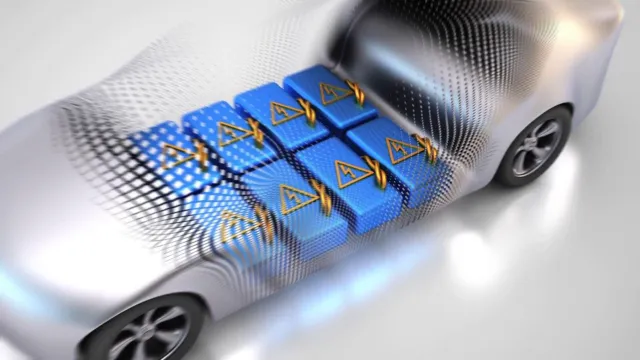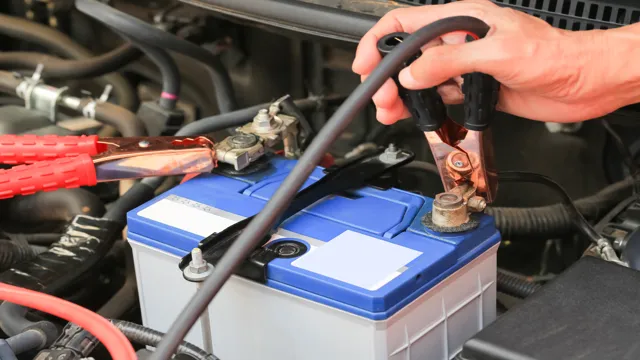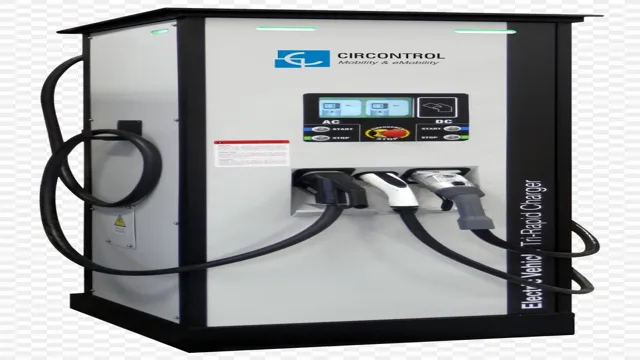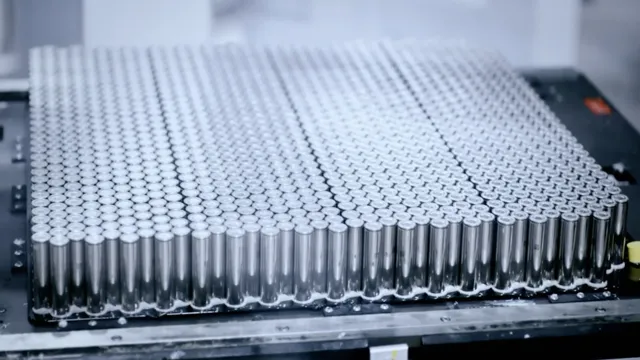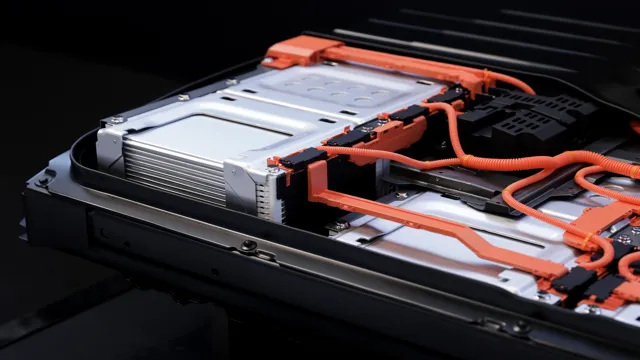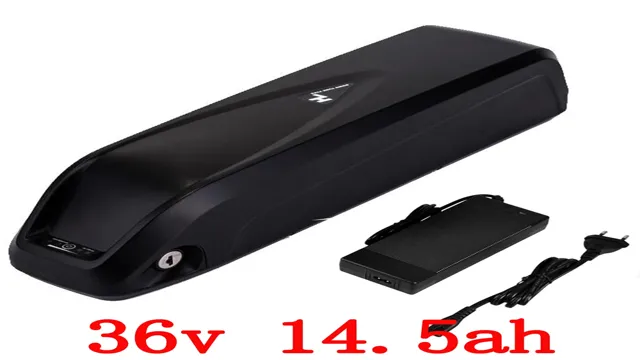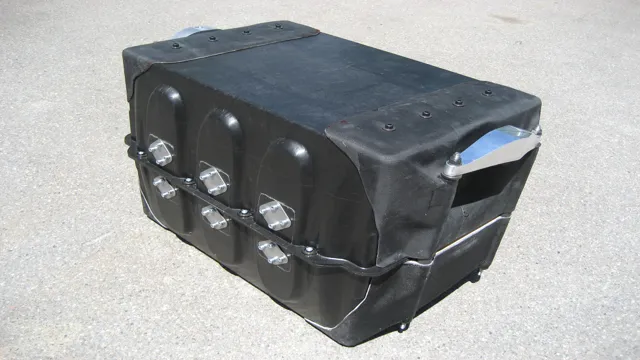Powering Beyond Cars: The Surprising Versatility of Batteries for Electric Engines!
Electric vehicles are quickly becoming the norm in the automotive industry, thanks to advancements in battery technology. However, the usefulness of electric engines and batteries extends beyond cars. From boats and airplanes to lawn mowers and generators, electric motors and battery packs are fueling a wide range of applications.
With renewable energy becoming more affordable, many industries are turning to electric power to reduce carbon emissions and increase energy efficiency. In fact, electric engines have been around since the 1800s, but it wasn’t until recently that batteries were able to store enough energy to be practical for a wide range of uses. Now, electric motor technology is becoming more sophisticated, and batteries are becoming denser and longer-lasting.
This means that electric power can be used to replace many traditional engines, including those that run on gas, diesel, and propane. In this blog, we’ll explore some of the exciting ways electric motors and batteries are being used beyond cars. We’ll look at emerging technologies that are changing the way we think about energy and transportation, and we’ll discuss the potential benefits of these technologies for individuals, businesses, and the planet.
Whether you’re an electric vehicle enthusiast or just curious about the latest innovations in energy, this blog has something for you.
Electric Boats and Ships
While electric cars continue to gain popularity, the potential for batteries to power other forms of transportation, such as boats and ships, should not be overlooked. Batteries for electric engines are not just for cars, as they can also be used to power watercraft. One of the key advantages of electric boats and ships is that they produce zero emissions, which is crucial in reducing pollution in our waterways.
In addition, batteries allow for quieter and smoother operation, which is appealing to boat owners looking for a more enjoyable experience on the water. While the upfront cost of an electric engine and battery system may be higher than traditional fuel-powered engines, the long-term savings on fuel and maintenance costs can be significant. As technology continues to improve, the range and power of batteries for electric engines is expected to increase, making electric boats and ships an even more viable option for environmentally conscious boaters.
Lithium ion batteries for marine vehicles
Electric boats and ships are gaining popularity in the marine industry because of their eco-friendliness and cost-effectiveness in the long run. Lithium-ion batteries have been playing a significant role in powering these vehicles. They are lightweight and have a higher energy density that allows them to store more power for longer journeys.
They are efficient, deliver a high performance, and have a longer lifespan than traditional lead-acid batteries. Additionally, they are low-maintenance, which translates to reduced downtime and operational costs. Lithium-ion batteries also provide a quiet and smooth sailing experience, making it an ideal option for eco-tourism boats and private yachts.
As technology continues to evolve, we can expect to see more marine vehicles utilizing these batteries, making electric boats and ships a more sustainable and reliable means of transportation on the water.
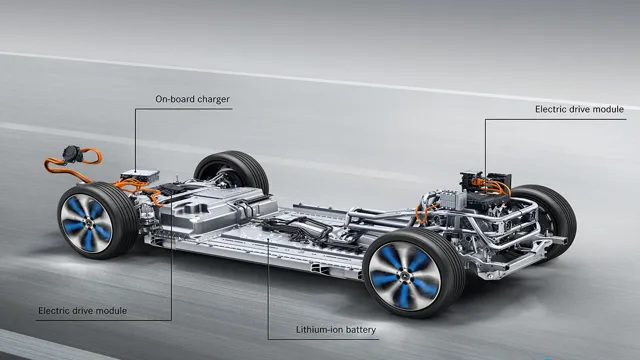
Advantages of using electric engines in marine vehicles
Electric boats and ships are becoming increasingly popular due to the many advantages that come with using electric engines in marine vehicles. First and foremost, electric engines are quiet, which means they do not produce harmful noise pollution that can disrupt marine ecosystems and marine life. In addition, electric engines are more efficient and environmentally friendly than traditional combustion engines, as they produce zero emissions and use renewable energy sources like solar or wind power.
Another advantage of electric boats and ships is that they emit fewer pollutants into the water, which is better for marine life and human health. Finally, electric engines require less maintenance than traditional engines, which means they are more cost-effective over the long term. In sum, electric boats and ships offer a greener, quieter, and more sustainable way to travel on the water, and they are becoming an increasingly popular option for boaters and shipping companies alike.
Electric Bikes and Scooters
Batteries for electric engines are not just for cars! With the growing popularity of electric bikes and scooters, we are seeing an increased demand for reliable and efficient battery options to power these modes of transportation. Lithium-ion batteries are becoming the norm due to their lightweight, high energy density, and long-lasting capabilities. They can be charged quickly and offer enough power to get you where you need to go without worrying about running out of juice.
It’s amazing how much power can be stored in such a small device. These batteries are changing the game for commuters looking for an eco-friendlier and cost-effective alternative to driving a car. It’s exciting to see advancements in technology impacting our daily lives in such a profound way, and we hope to see even more innovation on the horizon for electric engines.
E-bike and Scooter batteries for urban transportation
Electric bikes and scooters are becoming increasingly popular for urban transportation. These vehicles are powered by rechargeable batteries, which are typically lithium-ion. E-bikes and scooters offer an eco-friendly alternative to traditional gas-powered vehicles, reducing emissions and lowering carbon footprints.
Moreover, they offer cost-effective travel options, with low maintenance costs and minimal fuel expenses. E-bike and scooter batteries have a considerable impact on the vehicle’s performance, topping up the battery is an easy process and it can last a typical rider for several days of urban commuting. However, the batteries’ lifespan will depend on how frequently they are charged and discharged.
Because the battery is the most critical component of an e-bike or scooter, it is essential to choose reputable brands with longer battery warranties. Therefore, when purchasing an electric bike or scooter, it is essential to consider the battery performance, cost, and manufacturer warranties.
Battery technology improvements for longer ranges
Electric bikes and scooters have gained significant popularity as environmentally friendly and cost-effective modes of transportation. One major challenge for these vehicles is their limited range due to the battery’s capacity. However, with advancements in battery technology, this issue is slowly becoming a thing of the past.
Lithium-ion batteries are now widely used in electric bikes and scooters due to their high energy density, longer life cycle, and faster recharge time. Additionally, the use of alternative battery chemistries, such as solid-state batteries and graphene batteries, is currently being explored, which offer even more significant improvements in performance and range. These technological improvements have opened up new possibilities for riders, allowing them to travel longer distances without worrying about running out of power.
The future looks bright for electric bikes and scooters as battery technology continues to evolve and improve.
Electric Aircraft
When it comes to electric engines, we often think about batteries being used in cars, but did you know that batteries are also being used in electric aircraft? As technology continues to advance, the aviation industry is exploring the use of electric aircraft, which have the potential to reduce emissions and noise pollution. To power these aircraft, specialized batteries are being developed to store and release energy efficiently, lightweight enough to not affect the payload, and durable enough to withstand conditions at high altitudes. This is where the importance of batteries for electric engines becomes critical.
The aviation industry is already testing hybrid-electric planes, and while complete electrification of aircraft may take some time, the advancements in battery technology are making it more of a reality with each passing day. The potential benefits of electric aircraft are enormous, and with the right batteries, we may soon see greener skies above us!
Challenges faced with electric aircraft
Electric aircraft technology is rapidly advancing, bringing with it the promise of cleaner, more sustainable aviation. However, there are still several challenges that need to be addressed before electric aircraft can become a viable option for commercial use. One of the biggest challenges is range limitation.
Current battery technology cannot store as much energy as traditional fossil fuels, making it difficult for electric aircraft to fly long distances. Another challenge is the high cost of development and manufacturing. Electric aircraft require new and specialized components, which can be expensive to produce.
Additionally, there is a lack of infrastructure for electric aircraft, such as charging stations and maintenance facilities. Despite these challenges, there is still a lot of enthusiasm and investment in electric aircraft technology. As battery technology improves and the costs come down, we can expect to see electric aircraft become a more common sight in the skies of the future.
Battery innovations for longer air travel
Electric Aircraft Electric aircraft are becoming more and more of a reality due to new battery innovations that allow for longer air travel. These batteries have high energy densities, allowing them to store more energy per unit of weight, and are also more efficient at converting that energy into power for the aircraft. This is a major breakthrough since battery technology has been a limiting factor in the development of electric aircraft.
But now, with these innovations, it is possible to imagine a future with electric planes that can fly long distances. This not only reduces the carbon footprint of air travel but also makes it more efficient. With more research and development, we may see electric planes become a common sight in the skies.
Final Thoughts on Electric Engine Batteries
When it comes to batteries for electric engines, we tend to focus mainly on electric cars. However, these batteries are not limited to just cars and can be found in a wide range of electric-powered machines and vehicles. From lawnmowers and electric bikes to forklifts and heavy-duty trucks, these batteries are an essential component that powers the engine and keeps these machines running.
As we continue to look for ways to reduce our carbon footprint, electric engine batteries play a crucial role in helping us transition to a more sustainable future. As technology continues to evolve, we can expect to see even more innovative uses for these batteries beyond traditional transportation methods. So next time you think of electric engine batteries, remember that they are not just for cars but for any electric-powered machine.
Conclusion
In the world of electric propulsion, batteries are the fuel that powers our machines. And while most people associate them with electric cars, batteries have a much wider application when it comes to electric engines. From electric bikes to boats, drones to lawnmowers, batteries are proving themselves to be a versatile and indispensable tool for powering our world.
So, don’t underestimate the humble battery – it’s not just for cars anymore!”
FAQs
What are the different types of batteries used for electric engines besides those used in cars?
Lithium-ion, nickel-cadmium, and lead-acid batteries are commonly used for electric engines in applications such as boats, airplanes, and industrial machinery.
How do batteries for electric engines differ from those used in cars?
Batteries for electric engines need to be more durable, provide higher power output, and have longer lifetimes than those used in cars.
Can batteries for electric engines be recycled?
Yes, batteries for electric engines can be recycled. The process involves separating the various components and reusing them in new batteries.
What factors affect the lifespan of batteries for electric engines?
The lifespan of batteries for electric engines can be affected by factors such as usage patterns, temperature, charging habits, and maintenance. Proper care and maintenance can help extend the lifespan of these batteries.
How are batteries for electric engines disposed of?
Batteries for electric engines should be disposed of properly according to local regulations. They should not be disposed of with regular household waste as they can contain hazardous materials. Many manufacturers offer take-back programs for used batteries.
